Surrounded by a digital network, we can even complete a group's work by ourselves. But, in learning, is it a good thing that one person completes all the procedures of learning? That's something to think about. Which is the best way to study alone or collaboratively?
Most students like to study alone. Especially introverted and self-respecting students. This seems to be a stereotypical description of introverts. After all, everyone has his own preferred way of learning.
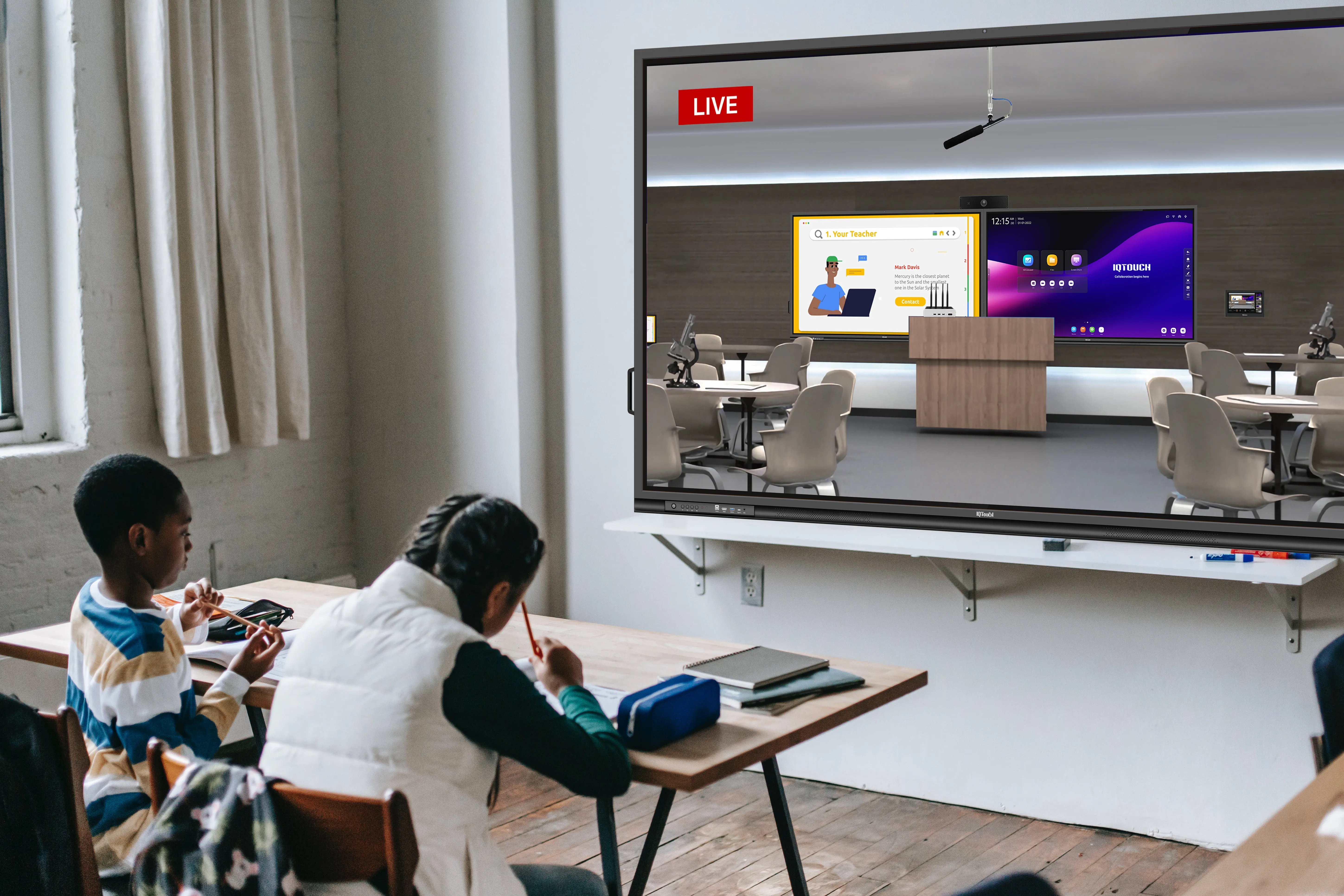
The benefits of learning alone are not only that it allows a person to understand knowledge without interference from others, build their own learning process, and master newly acquired knowledge independently.
It also gives them more freedom and control, they can decide the progress of learning according to their own preferences, and they will not misunderstand or conflict with their peers because of some conflicting values.
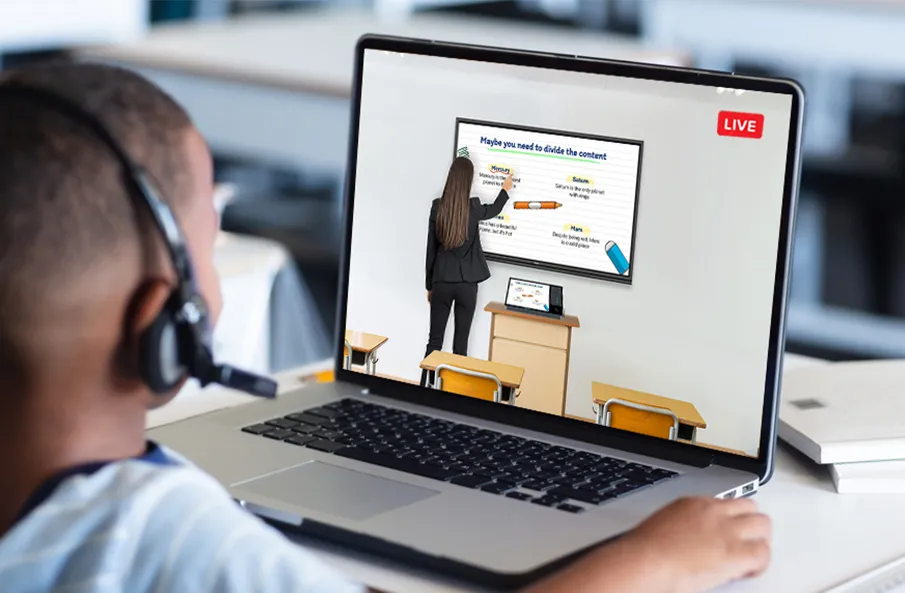
But is studying alone a good thing? Perhaps studying alone can cultivate students' sense of autonomy and the ability to solve problems by themselves. However, this is far less effective than collaborative learning.
Or, how can we test the effect of knowledge acquisition in the process of autonomous learning? You might be smart enough to use GPT as a learning metric. However, it has to be acknowledged that GPT prompt understanding and answer generation are largely based on the user's understanding of ideas and language orientation. Working in a group gives you a different perspective and a fair measure of what you're learning.
Generally speaking, friends are a bridge for you to understand the outside world. And a yardstick for you to constantly improve yourself. Studying alone without exposure to the external environment is not going to work. Only with friends learn together, brainpower, learn from each other, make up for their own shortcomings, and gain more knowledge.
There is an ancient Chinese saying that goes, "Two heads are better than one," which shows the power of cooperation. The power of cooperation cannot be underestimated in education and teaching. So, why do I advocate collaborative learning more?
In 1946, the famous American learning expert Edgar Dale put forward the Dale’s team found that there was a significant difference in the amount of content students were able to remember two weeks later with different learning styles. Here, the rate of knowledge retention is referred to as the "average learning retention rate". Under the learning style of group discussion, the way students absorb knowledge changes from passive to active. The average retention rate of students under group discussion is 50% higher than that of listening, reading, and even looking at pictures and demonstrations.
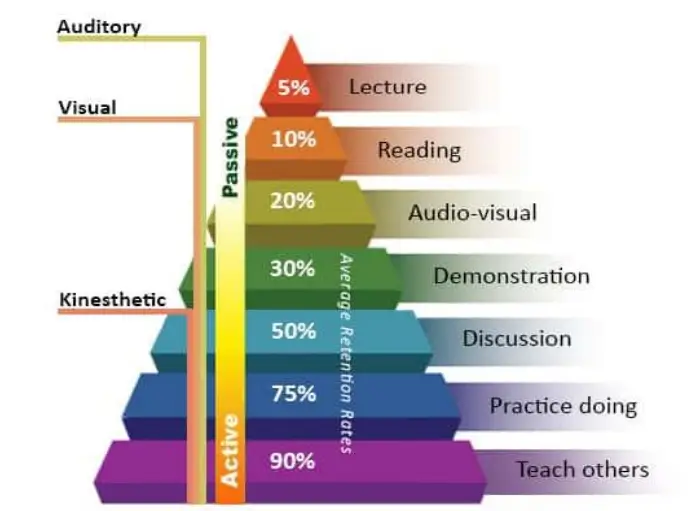
According to an empirical case study of the collaborative learning model and its effect on student achievement. The characteristics of knowledge and resource exchange of collaborative learning make the actual achievement of the students higher than the predicted achievement.
When you study alone for a long time, you will easily feel lonely. Just as it has been through the COVID-19 quarantine at home, which may also cause you to feel unhappy or anxious. Still, learning in a group setting can be fun. And it's a great way to make new friends and expand your social circle. When you have a pleasant learning environment, your learning efficiency will be improved.
It should be emphasized that I am not a total blended learning person, but I am committed to getting the most value out of each teaching or learning model through the power of educational technology.
So, how should we build a smart classroom suitable for blended learning in the information age? In this case, IQ solution might be a great solution for you.
Unlike traditional classrooms, the internal architecture of a smart classroom is composed of a series of advanced technologies and systems. Technology engineers like IQ think about how to create an engaging, interactive, and collaborative learning environment when thinking about customized smart classroom solutions.
The IQ smart classroom, with the blessing of IoT technology and continuous technological iteration and update, is powerful. Have a high-speed, reliable, and secure network that provides ubiquitous connectivity for all teachers and students.
Ensure that students, faculty, and guest presenters can access digital resources, collaborate in real-time, and share content without any interference during collaborative learning.
The network backbone is complemented by a series of interconnected systems and devices that work together to enhance the teaching experience. For example, the intelligent interactive flat panel IQTouch TB1300 Pro for group learning development enables teachers and students to annotate, share, and intuitively manipulate digital content. In addition, the function of wireless screen projection also promotes the sharing of ideas for collaborative learning.
In addition, if you are afraid of missing out on important content during collaborative learning, you can also scan the interactive enhanced app -JoinMemos provides QR codes to easily record the wonderful process of collaborative learning.
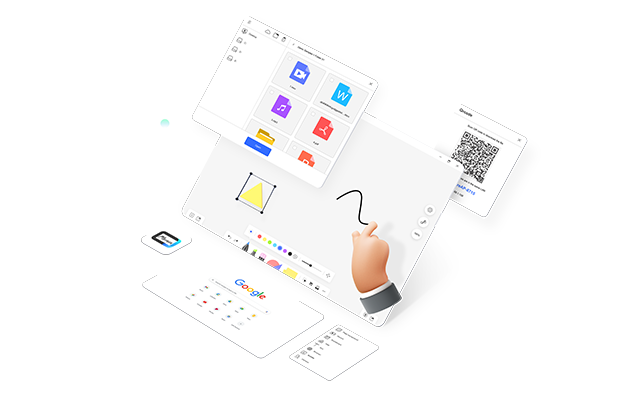
In addition, the smart classroom is equipped with an intelligent lecture capture system LCS710 that can automatically record, stream, and archive classroom lessons. This not only provides students with on-demand access to lectures but also generates valuable data and analytics that instructors can use to optimize their teaching strategies and track student engagement.
In addition, the smart classroom architecture integrates environmental sensors and controllers that monitor and optimize factors such as lighting, temperature, and air quality, ensuring a comfortable and conducive learning environment. Data collected from these sensors can also be analyzed to identify patterns and make data-driven decisions to enhance the overall classroom experience.
IQBoard interactivity solutions are spreading wings across every educational corner of the globe. From Malaysia to Thailand, Bahrain to Vietnam, and Kazakhstan to Bhutan, IQBoard is associated with all the prominent educational institutions in these regions to bring educational development through interactive learning.
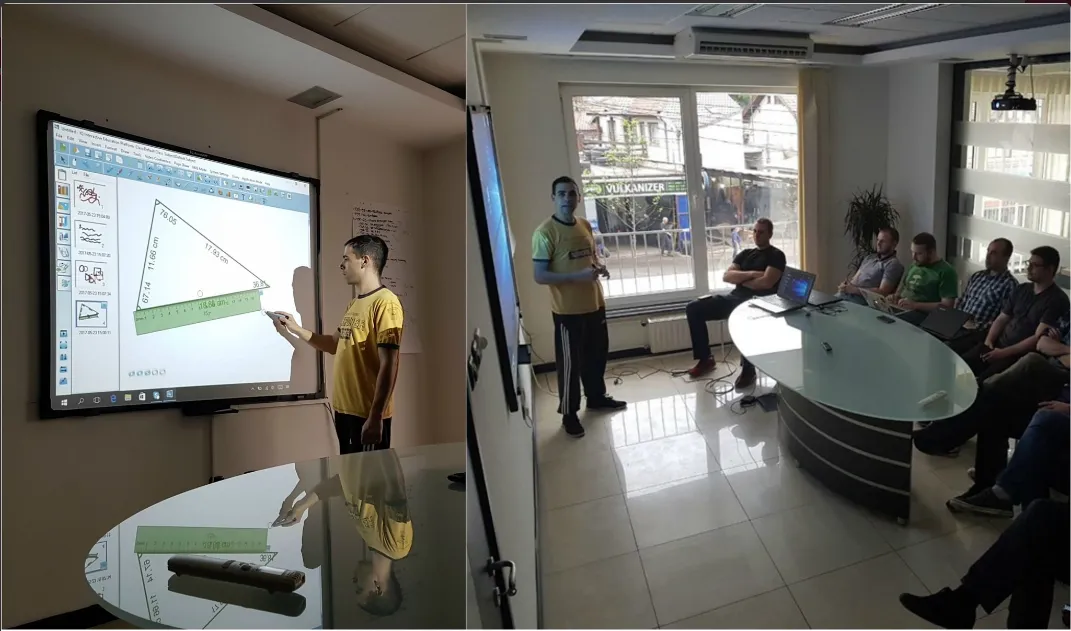
In Chulalongkorn University, Thailand students are learning in a better way using large-size IQTouch interactive touch screens, installed in the lecture halls, seminar rooms, and all other classrooms, to make learning better and better every day.
What is the difference between a smart classroom and a traditional classroom? What are the particularities of smart classrooms for group learning? Why is IQ a good choice? Through the detailed introduction in this article, you have a clear and definite answer to these questions.
Back to the topic, whether it is individual learning or group learning, as long as it meets your personal learning characteristics, it is good. If you also want to become a campus technical expert who successfully builds a smart classroom for group learning, you can click here to learn more about our program. I look forward to our deep cooperation, just like successful group learning!
Here are some other articles that we think might interest you:
Creating Collaborative Learning Spaces with Q-NEX NMP: The Future of Divisible Classrooms
Simplifying Interactive Display Management with Mobile Device Management(MDM)
Copyright © 2017.Returnstar Interactive Technology Group Co., Ltd All rights reserved.
